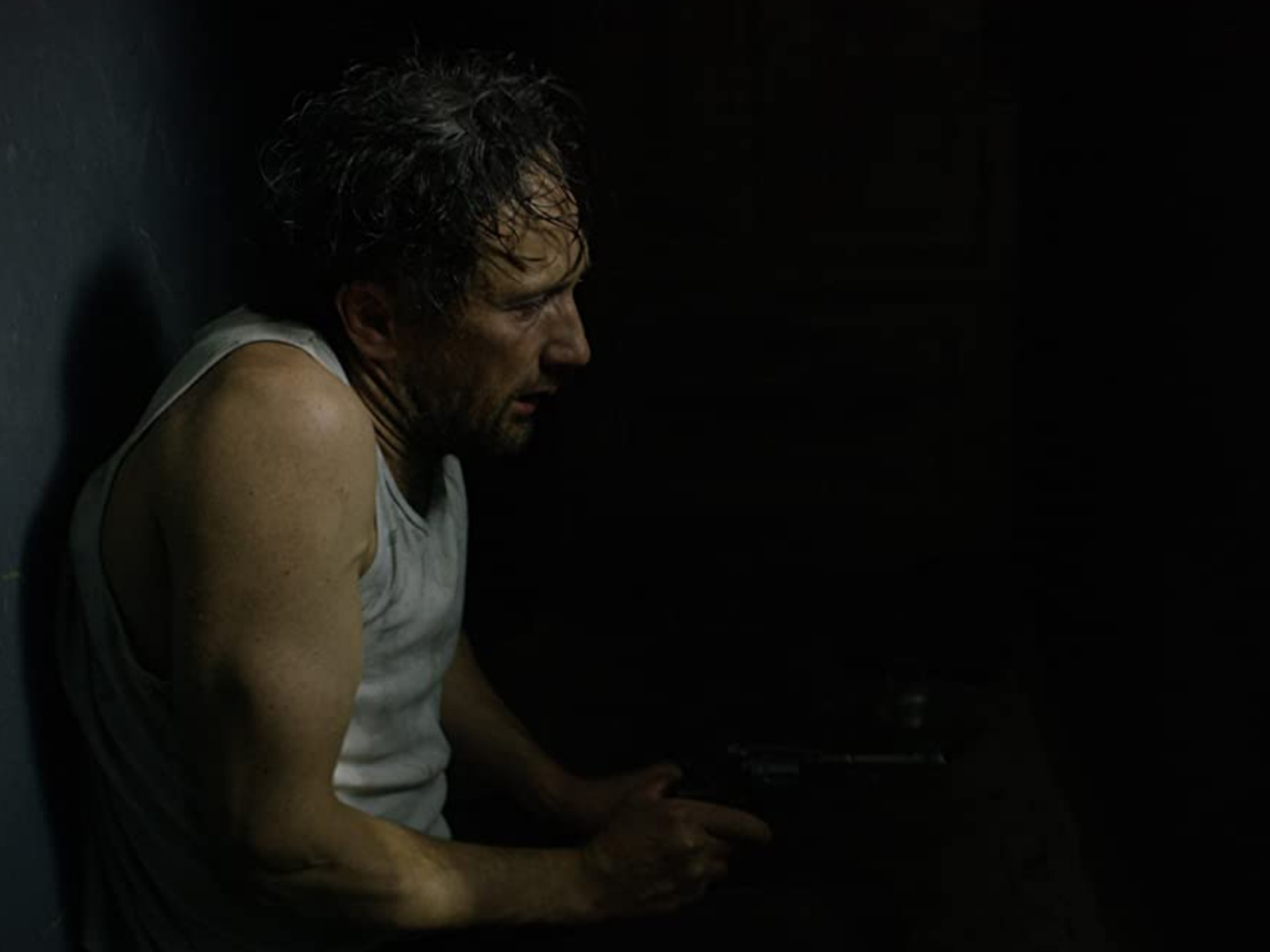
- Golden Globe Awards
Isaac (Lithuania)
In Jurgis Matulevičius’ noir tale Isaac, violence has no beginning or end. In line with The Painted Bird (2019) or this year’s Captain Volkonogov Escaped, the film meanders through the obscure halls of reciprocal crime, guilt, regret. The opening sequence is a one-take reenactment of real horror: the Lietukis garage massacre in 1941, when 40 Jews were killed at the hands of Nazis and their collaborators. Within an enclosed space, victims and perpetrators are gripped by the lure of death, bodies, and body parts piling up in a heap of absurd human brutality. This nightmarish and chaotic scene is significant as a metaphor for Lithuanian history. “In four years, we were occupied by Soviets, Nazis, and Soviets again,” said the young auteur in a Film Inquiry interview last March. “When that happens, something clicks in your mind, and you start to believe no one. You think, ‘who cares?’ When Nazis come, they kill your neighbors. When the Soviets come, they send your sister and brother to Siberia to work in the camps. I wanted to portray this chaos that happened in my country inside my main character’s head.”
It feels right that the main character of the story, Andrius (Aleksas Kazanavičius), is a hidden anti-hero moving things along not so much by his actions as by his internal turmoil. The film is named after Andrius’ victim at the Lietukis garage massacre. When the plot skips 20-plus years forward to 1964, he is still tormented, victimized by his demons, unable to find respite from the gnawing guilt. His job as a crime photographer serves as a punishing reminder of his unforgiving past. Andrius is also the pivotal thrust behind the triangular connection with his neglected wife Elena (Severija Janusauskaite) and his old friend Gediminas Gutauskas (Dainius Gavenonis).
Although the audience may be inclined to root for the life-affirming characters of Elena and Gediminas, it is in the brooding Andrius that all forces, internal and external, converge. While Gediminas becomes the target of Soviet suspicion, it is the shadowy Andrius whom we feel as containing a real and potent threat – a threat that weighs on every character indiscriminately. “He was driven by anger and ended up killing a man,” said the director of his protagonist in an interview to Cineuropa, two Novembers back when Isaac was first presented at the Tallinn Black Nights Festival, in Estonia. “It stems from his cowardliness, after finding himself in the wrong place at the wrong time. Later, he is haunted by this image, this guilt, but there is no way back”.
The film is not just about one man or Lithuania alone. “I think that every country has indecent chapters and indecent people in their history; there are no exceptions,” Matulevičius stated in the same interview. “I hope that everyone can recognize themselves in that situation. Very often, we want to go back to the past and change it. We understand it’s not possible, but this illusion helps us to live in the present – and maybe not repeat the same mistake again.”
The notion of entanglement is expressed visually through serpentine camera movements, by the ins and outs of the happenings before it, as well as by the seemingly arbitrary alternating between contrasting black & white and the blood-red hues. Here, past and present mingle in the characters’ minds while, accordingly, life and illusion are painted in the colors of their choice.

